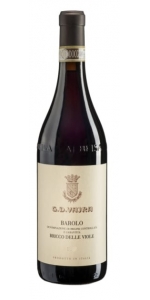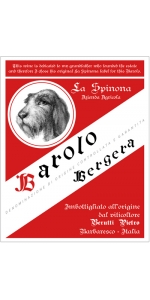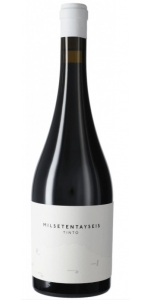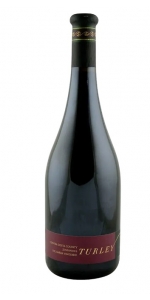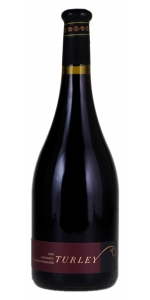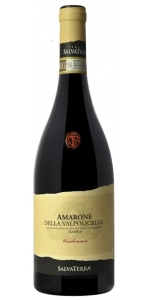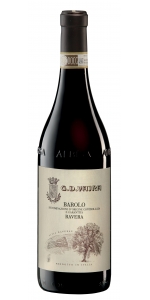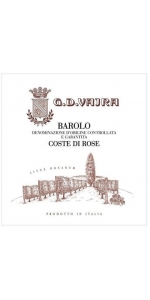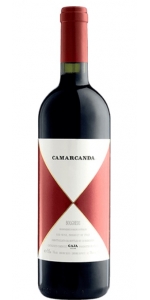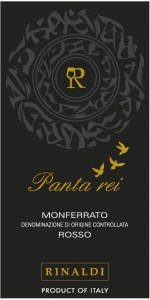G.D. Vajra Freisa 'Kye' Langhe Rosso 2018
6 bottles with free shipping for: $300.00
12 bottles with free shipping for: $480.00
| BUY MORE! SAVE MORE! | ||||||||||||||||||||
|
| Country: | Italy |
| Region: | Piemonte |
| Winery: | G.D. Vajra |
| Grape Type: | Freisa |
| Organic: | Yes |
| Vintage: | 2018 |
| Bottle Size: | 750 ml |
G.D. Vajra Freisa 'Kye' Langhe Rosso is made from 100% Freisa.
DESCRIPTION: In 2004, Freisa was discovered to be the closest relative to Nebbiolo, thus explaining the deep bond this variety has with Piemonte and its people. With a noble profile and similar characteristics to the Nebbiolo, we have been bottling a dry Langhe DOC Freisa ever since 1989. Kyé means ‘who is?’ and represents the surprise for this indigenous and forgotten grape.
VINEYARD AND TERROIR: Estate vineyards, the oldest located in San Ponzio, on the lower west border of Bricco delle Viole. This is the closest vineyard to the winery, and a selezione massale planted by Aldo in 1980.
GROWING: In 1971, Aldo Vaira was one of the earliest adopters of organic farming in Piemonte. Vineyards have been nurtured and soil preserved by grassing and cover crop for almost 50 years now. With an incredible ratio of manual work per hectare, farming at Vajra is a labor of love and “recipe-free” attention. Intense research is also placed into monitoring and improving the biodiversity of both flora and fauna not just in the vineyards, but also in the winery fields and forests. The winery is sustainably certified (UNI EN 11233:2009) and will be again fully organic certified since 2019.
Langhe DOC Freisa Kyè displays a beautiful, translucent garnet color. The aromatics are a combination of redcurrant and wild mountain berries, layered with a touch of sweet spices, fresh leather, and candied japonica prune. The mouth is juicy, succulent, with lots -yet never hefty- tannins. There is a beautiful structure in this vintage and a lovely, lovely finish.
Review:
‘The 2018 Langhe Freisa Kyé is quite refined in this vintage and yet it also shows all of the aromatic nuance and complexity that are such signatures of this variety and wine. Dried herbs, rose petal, lavender, mint and spice lend exotic nuance to this deep, beautifully layered Freisa. The Kyé is one of the sleepers of Piedmont's 2018 vintage. It is, quite frankly, ‘as good or better than some Barolos in this tricky vintage. ~- Antonio Galloni
-Vinous 93 Points
LAND There is no vineyard, no terroir, without the land. To love it is simple, but not easy. The land is generous and alive. It is beautiful. It needs understanding and time. It takes your breath away with its colors and many wonders. The land asks for absolute dedication. It asks to be loved for better or worse, in abundance and scarcity. The land is almost more than a house. It's part of our life and asks to be guarded with the same tenderness that we have for our loved ones. And the amazing thing is that, despite all the difficulties, to love it does not need any effort.
ROOTS "A tree does not grow without roots" "This is the origin of the esteem and affection for the people who have lived and loved our land. An affection that becomes a desire of identification and makes us want to share it with our friends." Giuseppe, Francesca, Isidoro. A special thank you to Mauro Fermariello, with whom we realized this interviews.
G.D. Vajra Bricco Delle Viole Barolo is made from 100 percent Nebbiolo.
The Barolo Bricco delle Viole shows the signature verticality of its vineyard. The wine is beautifully layered and - while restrained as it’s always the case in the youth of Bricco delle Viole - it also shows a complexity of layers with purple flowers, sweet spices and mineral tones. The palate is noble, with a refined acid spine and profound tannins that promise a long aging potential.
Among the historical vineyards of Barolo, Bricco delle Viole is the highest and the closest to the Alps. It rises from 400 to 480 meters above sea level, on the Western ridge of the village. Its name, “Hill of Violets”, originates from the flowers that blossom early here due to the perfect south exposure. Up above the fogs, Bricco delle Viole enjoys the earliest sunrise and the last sunset every day. Thanks to its vines dating back to 1949 and -now- 1931, a dramatic diuturnal temperature range and this pure light, Bricco delle Viole generates a sophisticated and profound Barolo DOCG of bright aromatics, chiseled tannins and subtle minerality. 2018 is a vintage that shows many nuances of Bricco delle Viole: beyond the signature verticality of this site, the wine offers high tones laced with mineral nuances and plenty of energy and youth.
Review:
A juicy Barolo, with vibrant acidity and a fluid profile that exudes cherry, raspberry, mown hay, mineral and eucalyptus aromas and flavors. Tight yet long, with excellent potential.
#26 Wine Spectator Top 100 of 2023
The last wine poured at my tasting at the winery is the G.D. Vajra 2019 Barolo Bricco delle Viole. With its high vantage point in the hills west of Barolo, Bricco delle Viole is a world apart in terms of soils (with Sant'Agata marl and fossils) and even harvest times. Slow and careful ripening like the kind that characterizes fruit in 2019 renders a very delicate and ethereal expression with floral tones, wild mint and licorice. This organic wine is solid in build and structure. Indeed, Isidoro Vaira remarks that Nebbiolo tannins have changed since the 1970s and 1980s.
-Wine Advocate 97+ Points
Jeweled in appearance, the 2019 Barolo Bricco Delle Viole may be the best wine I have tried yet from Vajra. Its gorgeous and alluring perfume of fresh roses is followed by a Burgundian, elegant red with incredible length and no harsh edges, fine and present tannins, and beautiful, graceful concentration. It is drinking well now, and I will be trying to get my hands on as much of this as possible. Drink 2025-2045.
-Jeb Dunnuck 97 Points
La Spinona Cru Bergera Barolo is made from 100 percent 100% Nebbiolo Lampia
The Beruttis bought 4 hectares in 1994 in the then relatively unknown zone of Novello which lies on the confines of Monforte and Barolo. A Sorì is an entirely south-facing vineyard. This Sori lies at 230 meters. It is named for the great grandfather that started the Barbaresco vineyards. The vines are an average of 40 years old. Bergera comes from the mid part of the vineyard and is dedicated to Pietro's grandfather who started the estate.
Brilliant deep ruby red with garnet reflections. Rich fruity bouquet with hints of cherries, violets liquorice and mint. Good structure with full, cherry-ripe flavors. The tannins are gentle and the spice subtle. It is an elegant wine of great finesse and drinkability. Excellent with wild game, roast, braised or stewed red meats, truffle dishes and aged cheeses.
Review:
"Underbrush, violet and new leather aromas come to the forefront on this fragrant red. The bright, linear, elegantly structured palate offers pomegranate, cranberry and star anise framed in taut, fine-grained tannins. It has an almost salty finish. Drink 2026–2036. - KERIN O’KEEFE"
- Wine Enthusiast (November 2021), 94 pts
Milsetentayseis 1076 Ribera del Duero Tinto is made with 95% Tempranillo and 5% other native varieties.
TASTING NOTES: A product of its unique landscape, extreme altitude and mineral-rich soil, 1076 Tinto is a bold wine with a distinct character designed to evolve over time. Its freshness and intensely fruity expression are representative of a modern style, moving away from excess, in search of the elegance, smoothness and balance found in the great wines of the world.
TERROIR: A recently restored vineyard situated at over 3,280 feet of altitude where ancestral vines over 100 years old grow harmoniously together with new, indigenous plantings in varied soil comprised of red clay, sand and mineral deposits of quartz, mica, and feldspar.
WINEMAKING: Hand-harvested from a selection of the best plots in the vineyard then separated into concrete, oak or stainless steel fermentation vats depending on the characteristics of the grape and the soil where it was grown. Its production is defined by the team´s constant vigilance throughout the process and their in-depth knowledge of the region, the soil and the native varieties that thrive there.
Pair with spit-Fire Roasted Suckling Pig.
After working with the fruit for over a decade, Turkey is proud to present the first single-vineyard bottling for Turley from the Del Barba Vineyard. Contra Costa is a delta where the San Joaquin and Sacramento rivers meet, and these head-trained vines are planted in deep dehli blow sand, made up of decomposed granite coming down from the Sierra Mountains. The resulting wine embodies the best the delta has to offer: silken textures, ultra fine tannin, and dark saline fruits.
Review:
Sourced from head-trained vines planted in 1980 on sandy soils, the 2022 Zinfandel Del Barba Vineyard is a light, elegant and approachable expression of Turley's substantial Zinfandel collection. Medium ruby in color, it is initially coiled and opens slowly into a bright, inviting nose with aromas of Earl Grey tea, licorice and red cherries, albeit with slightly less definition and clarity than found in other bottlings. The palate is medium-bodied, deeply red-fruited and lined with spicy, floral accents. The finish is long and perfumed, framed by clay-textured tannins and lifted, juicy acidity harnessed with an understated elegance.
-Wine Advocate 93 Points
Turley Kirschenmann Vineyard Zinfandel is made from 100 percent Zinfandel.
Organically farmed, own-rooted, head-trained and dry-farmed vines planted in 1915 in the silica-rich sandy soils of the east side of the Mokelumne River AVA. Marking the 10th vintage of this wine, bright ripe red fruits, raspberry preserves, and white pepper burst forth from the glass. Precise on the palate like a perfectly seasoned piece of meat, with more red berries and a sumptuously complex texture.
Review:
Salvaterra Amarone della Valpolicella Classico is made from 65% Corvina, 20% Corvinone, 10% Rondinella, 5% Oseleta.
Perfume of cherries, cocoa, tobacco and black pepper. On the palate it is complex and deep, elegant and robust at the same time, harmonious and with an excellent tannin.
Amarone della Valpolicella Classico is "the essence of the territory", structured but also fresh at the same time.
Pairs with red meats, aged cheese, dark chocolate, cigars.
Review:
Abundant lively red cherries, plums and mellow milk choolate with a energetic and powerful structure, an elegant frame of velvety tannins and an attractive balsamic finish.
-Decanter 96 Points
G.D. Vajra Barolo Ravera is made from 100 percent Nebbiolo.
The Barolo Ravera shows a striking balance of all tones. Red and dark fruits on the nose are interlaced with mineral hints and the iron tones which are such a signature of Ravera. The wine has brilliant drinkability, with a layered, ample mid palate and a racy finish.
Review:
Seamlessly stitched together, the G.D. Vajra 2018 Barolo Ravera reveals tight layering and smooth texture. Fruit comes from an amphitheater of vines with Tortoniana epoch sandstone clay that is typical of parts of Barolo and Novello. What stands out here is the mineral character of the wine. It frames a dark core of plum, dark cherry and soft spice.
- Robert Parker's Wine Advocate 94 Points
G.D. Vajra Bricco Delle Viole Barolo is made from 100 percent Nebbiolo.
The Barolo Bricco delle Viole shows the signature verticality of its vineyard. The wine is beautifully layered and - while restrained as it’s always the case in the youth of Bricco delle Viole - it also shows a complexity of layers with purple flowers, sweet spices and mineral tones. The palate is noble, with a refined acid spine and profound tannins that promise a long aging potential.
Among the historical vineyards of Barolo, Bricco delle Viole is the highest and the closest to the Alps. It rises from 400 to 480 meters above sea level, on the Western ridge of the village. Its name, “Hill of Violets”, originates from the flowers that blossom early here due to the perfect south exposure. Up above the fogs, Bricco delle Viole enjoys the earliest sunrise and the last sunset every day. Thanks to its vines dating back to 1949 and -now- 1931, a dramatic diuturnal temperature range and this pure light, Bricco delle Viole generates a sophisticated and profound Barolo DOCG of bright aromatics, chiseled tannins and subtle minerality. 2018 is a vintage that shows many nuances of Bricco delle Viole: beyond the signature verticality of this site, the wine offers high tones laced with mineral nuances and plenty of energy and youth.
Review:
The 2018 Barolo Bricco delle Viole is not super intense, but it is balanced in its own way. The wine is subdued but complete with softly yielding tannins to support an elegantly streamlined mouthfeel. Bricco delle Viole is a high and cool growing site in Barolo at 400 to 480 meters in elevation with characteristic Sant'Agata marl soils with fossils. The wine represents a selection of fruit from over seven hectares. With fermentation in steel tank and aging in large Slavonian oak, you are invited to a silky, lifted and beautifully delicate experience with an accessible personality.
-Wine Advocate 95 Points
Cellar Selection
An elegant version, this red features rose, black currant, cherry, mineral and a hint of eucalyptus aromas and flavors. Linear in profile, this is solidly built on a graceful frame, with finely woven tannins and vibrant acidity.
- Wine Spectator 95 Points
G.D. Vajra Barolo Coste di Rose is made from 100 percent Nebbiolo.
The Coste di Rose is a very seductive wine right out of the gate. Cherries and roses burst on the nose, with hints of amarena, red hard candy, wild berries, wet stone, mint and thyme. The palate is radiant and expressive, with all of the signature elements of Coste di Rose in nice evi-dence: the ethereal character, the saline, up-front tannic structure, and further whiffles of roses and cherries in the finish.
Review:
This wine shows a darker and more savory profile than Vajra’s Costa di Rose, its black-cherry flavors tinged with notes of licorice and tobacco. Scents of lavender and violet lend a delicate touch to the wine, which continued to gain verve and freshness with time in the glass.
-Wine & Spirits 96 Points
G.D. Vajra Bricco Delle Viole Barolo is made from 100 percent Nebbiolo.
The Barolo Bricco delle Viole shows the signature verticality of its vineyard. The wine is beautifully layered and - while restrained as it’s always the case in the youth of Bricco delle Viole - it also shows a complexity of layers with purple flowers, sweet spices and mineral tones. The palate is noble, with a refined acid spine and profound tannins that promise a long aging potential.
Among the historical vineyards of Barolo, Bricco delle Viole is the highest and the closest to the Alps. It rises from 400 to 480 meters above sea level, on the Western ridge of the village. Its name, “Hill of Violets”, originates from the flowers that blossom early here due to the perfect south exposure. Up above the fogs, Bricco delle Viole enjoys the earliest sunrise and the last sunset every day. Thanks to its vines dating back to 1949 and -now- 1931, a dramatic diuturnal temperature range and this pure light, Bricco delle Viole generates a sophisticated and profound Barolo DOCG of bright aromatics, chiseled tannins and subtle minerality. 2018 is a vintage that shows many nuances of Bricco delle Viole: beyond the signature verticality of this site, the wine offers high tones laced with mineral nuances and plenty of energy and youth.
Review:
A juicy Barolo, with vibrant acidity and a fluid profile that exudes cherry, raspberry, mown hay, mineral and eucalyptus aromas and flavors. Tight yet long, with excellent potential.
#26 Wine Spectator Top 100 of 2023
The last wine poured at my tasting at the winery is the G.D. Vajra 2019 Barolo Bricco delle Viole. With its high vantage point in the hills west of Barolo, Bricco delle Viole is a world apart in terms of soils (with Sant'Agata marl and fossils) and even harvest times. Slow and careful ripening like the kind that characterizes fruit in 2019 renders a very delicate and ethereal expression with floral tones, wild mint and licorice. This organic wine is solid in build and structure. Indeed, Isidoro Vaira remarks that Nebbiolo tannins have changed since the 1970s and 1980s.
-Wine Advocate 97+ Points
Jeweled in appearance, the 2019 Barolo Bricco Delle Viole may be the best wine I have tried yet from Vajra. Its gorgeous and alluring perfume of fresh roses is followed by a Burgundian, elegant red with incredible length and no harsh edges, fine and present tannins, and beautiful, graceful concentration. It is drinking well now, and I will be trying to get my hands on as much of this as possible. Drink 2025-2045.
-Jeb Dunnuck 97 Points
Gaja Ca'Marcanda 'Camarcanda' Bolgheri is made from 70% Cabernet Sauvignon & 30% Cabernet Franc .
Color : Deep garnet.Aroma : Initial aromas evoke violet, cassis, dark licorice and a spicy note of black pepper, leading to undertones of aromatic herbs, incense, dried rose petals, clove and cedar.Taste : Sleek and intense on entry with elegant herbal, light black pepper and cassis flavors on the mid palate.
Review:
After Bolgheri’s torrid and parched 2017 growing season, more moder-ate conditions in 2018 brought the vines and their wines shimmering to life. All of the wines at Ca’Marcanda fermented spontaneously in 2018, which Gaia Gaja attributes to the balance in the musts. This wine, a blend of cabernets sauvignon and franc, is taut and energetic, its flavors of crunchy plum and blackberry laced with notes of licorice, tobacco and graphite.
-Wine & Spirits 96 Points
The Ca' Marcanda estate does not make a Bolgheri Superiore, although this bottle would qualify as such. The 2018 Bolgheri Rosso Camarcanda is a blend of Cabernet Sauvignon and Cabernet Franc, and you definitely feel those full-throttle varietal aromas with big intensity and clarity. Spicy greenness comes forward as grilled rosemary and lavender essence, but the wine boasts nice depth and dimension, and enough textual richness to smooth it all out. This was a slightly cooler vintage with some sporadic rain showers throughout the summer. These conditions might explain the sharper side of those Cabernet aromas. As the wine moves over the palate, it reveals more substantial aromas of black fruit, spice and baker's chocolate. This vintage is slightly thinner than the hot 2017 expression before it and the classic 2016. However, this wine should certainly play forward positively in terms of its aging potential.
-Wine Advocate 95 Points
Dense and fluid at once, this red delivers plum, black cherry, licorice, olive, bay leaf and spice flavors. Ripe and balanced, with a lingering, spicy, tobacco-tinged aftertaste. Cabernet Sauvignon and Cabernet Franc. Best from 2023 through 2033. 1,500 cases made, 225 cases imported. — BS
-Wine Spectator 95 Points
Rinaldi Panta rei Monferrato Rosso is a blend of 50% Barbera and 50% Cabernet Sauvignon.
This wine is quite tasty, smooth, silky and powerful.
It is loaded with dried red fruit notes from the appassimento of the grapes and it also has a lot of spicy aromas and flavors from the oak ageing.
Grown on limestone soils.
The average age of the vines is 30 years old.
10% of the wine is appassimento. Appassimento is an Italian term for drying harvested grapes, traditionally on bamboo racks or straw mats, for a few weeks up to several months to concentrate the sugars and flavors. This process is used in making Amarone, Recioto and Sforzato.
This drying method is not traditional in Piemonte but is popular in other part of Italy like in the Veneto region.
Thanks to this new method the wine is rounder and softer, boasts beautiful notes of red dried fruits.
Pantarei is aged 14 months in French oak ((the wood is Allier, medium toast) barrels and 6 months in bottle before release.
Delicious with wild game, grilled meat and strong cheese.
- back
Alain Jaume Gigondas Terrasses de Montmirail is made from 65% Grenache the rest Syrah, Mourvèdre by less than 15%.
Deep red garnet color. Aromas of ripe and black fruits. On the palate the wine is rich, powerful and harmonious - well balanced with wild berry and pepper dominating.
Soil types
Located in and around the famous area called “Dentelles de Montmirail”, the landscape typicity is made by a rocky bar (between 100 and 600 meters high). Soils are made of clay and sand with limestone. The “Dentelles” appeared thanks to the pressure between the Pyrenees and Alps mountains. This is a land of predilection to produce both powerful and fresh wines. Nights are cooler and the grapes ripeness usually comes in late September.
Winemaking & aging
Traditional wine-making in stainless and concrete vats. Crushed and destemmed grapes. Average of 18 days of vatting with pigeages. Ageing in vats mostly and oak barrels. Bottling after 12 – 14 months.
Ziata Meteor Vineyard Cabernet Sauvignon is made from 100 percent Cabernet Sauvignon.
Bold and intense, this Cabernet Sauvignon from the Meteor Vineyard in Coombsville is full-bodied and berry-driven, with rich spice undertones and a firm structure.
After 20 years of marketing Napa Valley and its wines, Karen Cakebread launched her own project in 2008 with two major goals in mind: to create beautifully structured wines that reflect the vineyards from which they come, and to be involved in every aspect of making the wines.Karen started ZIATA, named in honor of her mother, Mary Annunziata, in 2008 with three varietals: Cabernet Franc, Sauvignon Blanc and Pinot Noir, which she chose for their food-friendly qualities. She hired Anne Vawter, a protégée of Heidi Barrett, as winemaker and sourced grapes from sustainable sources, working closely with the grape growers through the growing season, knowing that efforts made in the vineyard would create better wine than those manipulated in the cellar. Jennifer Williams : I find winemaking to be both an art and a trade—you learn by doing and working the vineyards, ensuring the fruit is the best it can be long before it’s picked is at least half the work of the winemaker.


